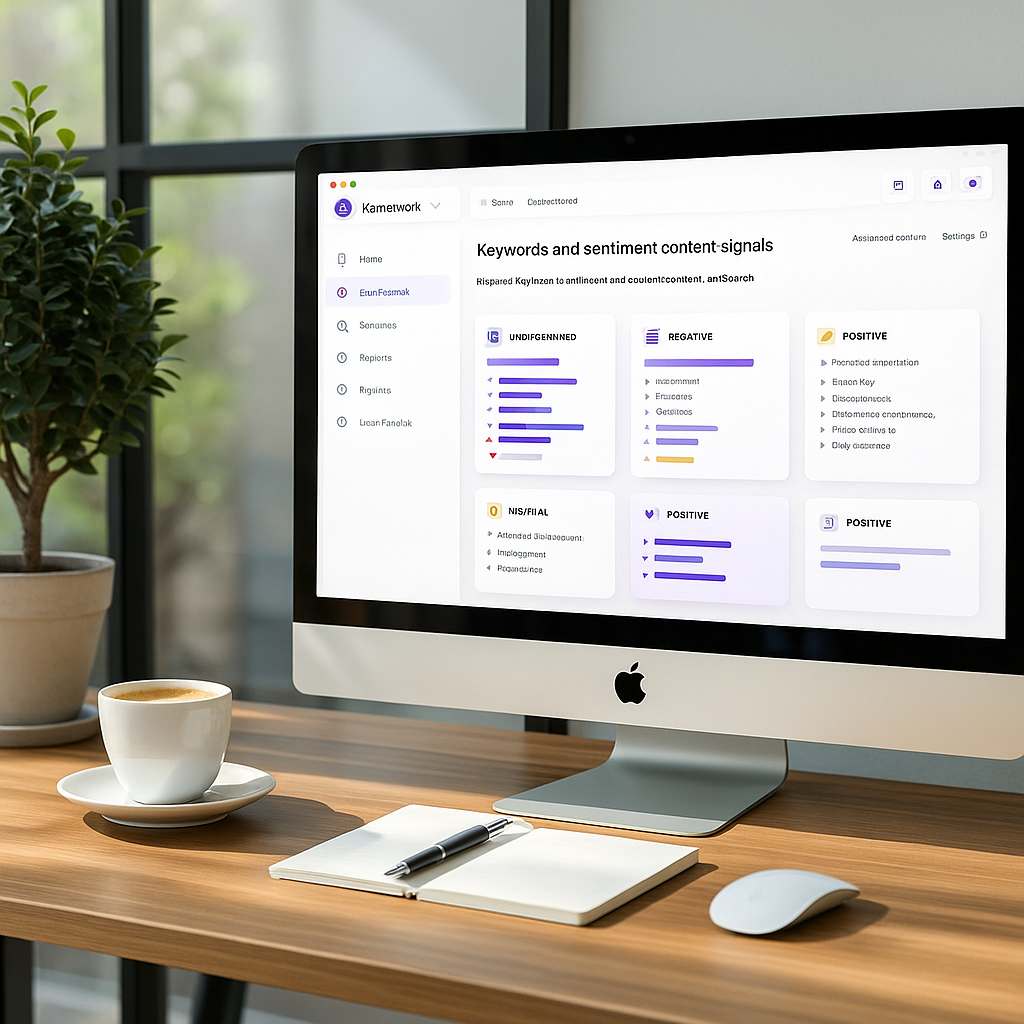Building a Content Framework for AI Search: Navigating New Frontiers in SEO
The rise of AI-driven search technologies is transforming how content creators and marketers approach search optimization. Developing a structured content framework tailored for AI search requires moving beyond traditional keyword strategies to emphasize context, intent, and semantic understanding. AI search engines demand content that is relevant, deeply informative, and organized to support nuanced queries and conversational interactions.

Shifting Content Creation for AI Search
Creating content for AI search involves anticipating user questions and providing comprehensive, logically structured answers. This approach encourages a layered focus on clarity, depth, and natural information flow, improving visibility and engagement as AI prioritizes content demonstrating expertise and relevance through meaningful narratives.
Unlike traditional SEO, which often targets keyword matching, AI search prioritizes understanding user intent and delivering content that addresses it thoroughly. Content must have a clear hierarchy and logical progression, enabling AI to interpret meaning beyond isolated phrases. Each section should build on the previous one to form a cohesive narrative that AI can easily parse.
Depth, Structure, and Semantic Signals
Content should cover various angles of a topic, moving away from shallow keyword repetition toward nuanced, well-rounded answers. This layered approach enhances AI comprehension and user experience by connecting related concepts and supporting a natural progression of information.
Integrating semantic signals such as clear headings, subheadings, and structured data helps AI understand relationships between ideas. These markers improve accessibility for AI algorithms that assess relevance and authority. Maintaining clarity and precision in language avoids ambiguity that could hinder AI interpretation. The goal is to create a thoughtful, well-organized resource aligned with how intelligent systems process and prioritize information.
Key Considerations for Effective Optimization
The transition to AI-driven retrieval systems requires rethinking content creation and structure. Content now competes to be cited and synthesized by language models that emphasize intent and context. Designing content with a clear understanding of likely user questions and providing comprehensive, well-organized answers enables AI to interpret and integrate information effectively.
Breaking down information into smaller, self-contained units (100 to 300 words) helps AI process and reference content accurately, reducing misinformation risks. Authoritative citations and transparent sourcing reinforce credibility, aligning with the growing emphasis on expertise, experience, authoritativeness, and trustworthiness.
Technical and structural elements also support AI search optimization. Websites should feature clean code, fast loading times, and logical hierarchies that guide AI through content efficiently. Schema markup and consistent URL structures enhance AI’s ability to index and retrieve relevant information. Success metrics now include AI citation frequency, branded search growth, and control over knowledge panels, reflecting AI’s influence on search visibility and engagement.
SEO is evolving into relevance engineering—prioritizing content that is intelligible, trustworthy, and contextually rich for both humans and AI. This means developing content that answers questions thoroughly and fits naturally within a broader information ecosystem, supporting discovery and conversion across platforms. Adopting this mindset positions content to meet AI search demands and maintain visibility as intelligent systems shape information access.
Frequently Asked Questions About Building a Content Framework for AI Search
How can content balance depth with clarity?
AI systems perform best with content that is comprehensive yet easy to parse. Breaking complex topics into digestible segments addressing specific aspects makes content accessible to AI models analyzing context and intent, while providing users with clear, focused answers.
What role do semantic signals play in AI comprehension?
AI search relies on understanding relationships between concepts rather than keyword placement alone. Using well-defined headings, subheadings, and structured data highlights these connections, guiding AI through the logical flow of information and improving indexing accuracy and user experience.
How can content cover a topic’s breadth without repetition?
Addressing a variety of related queries within a single framework, where each section builds on the previous one, forms a cohesive narrative. This layered approach encourages thoroughness without redundancy, allowing AI to draw from a rich pool of relevant information and positioning content as a trusted resource.
What technical factors support AI search optimization?
Site speed, clean coding, and schema markup are essential for efficient AI indexing and retrieval. These technical elements complement the content framework, helping AI recognize the value and relevance of material, which improves visibility and engagement.
Conclusion
Adapting content strategies for AI-driven search requires balancing clarity, depth, and structure beyond traditional SEO. Focusing on user intent, semantic relationships, and well-organized information enables content to be understood, trusted, and prioritized by AI systems. Integrating technical elements like schema markup and clean coding further enhances accessibility and authority. This approach positions content to engage both AI algorithms and human audiences, supporting greater visibility and meaningful interaction in a search environment shaped by intelligent technology.
For more insights, read the original article on Search Engine Land: Chunk, cite, clarify: How to build a content framework for AI search.
As noted by the article’s author, “Designing content with a clear understanding of likely user questions and providing comprehensive, well-organized answers enables AI to interpret and integrate information effectively.”













.png)

